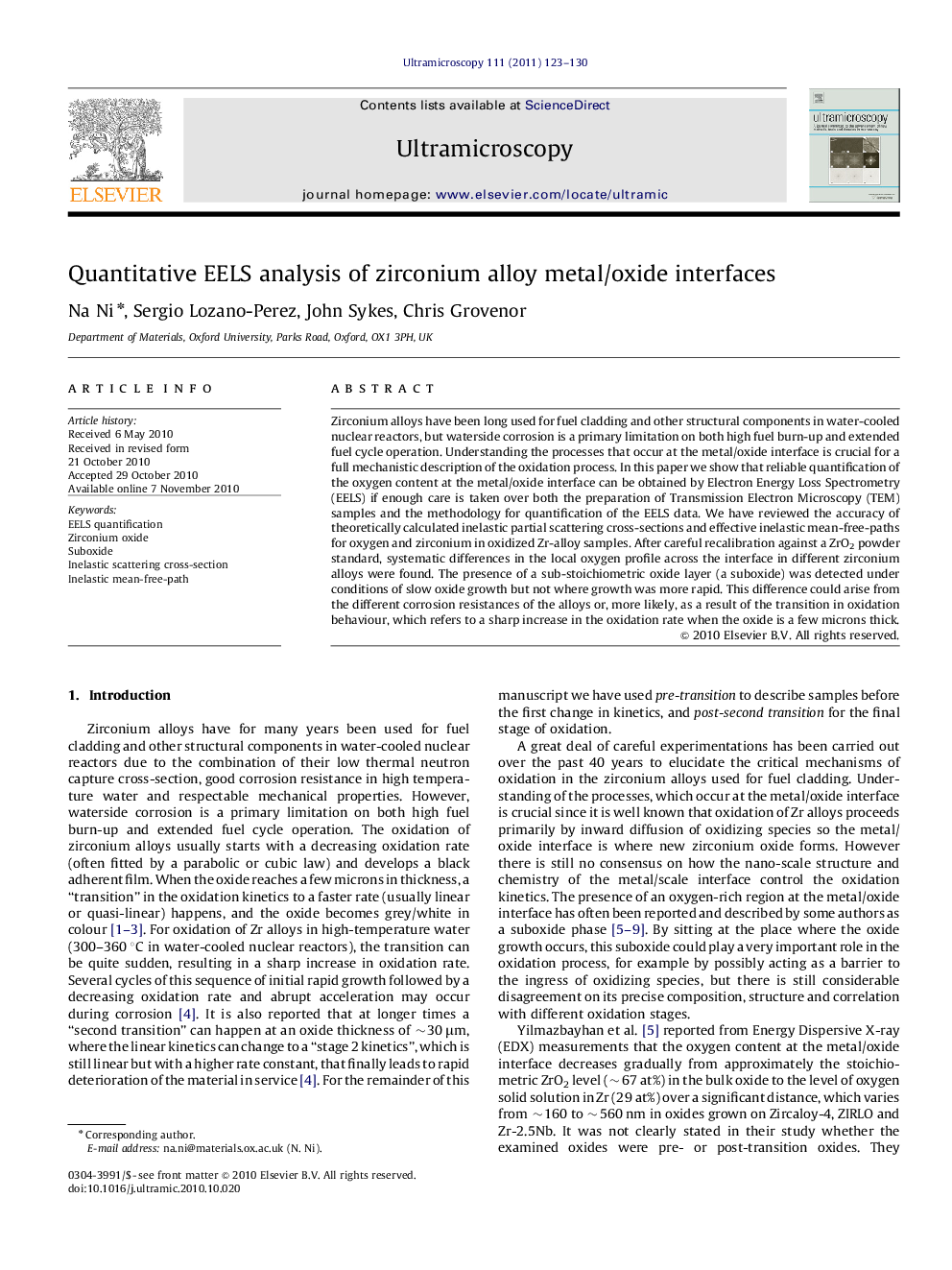| Article ID | Journal | Published Year | Pages | File Type |
|---|---|---|---|---|
| 1678029 | Ultramicroscopy | 2011 | 8 Pages |
Zirconium alloys have been long used for fuel cladding and other structural components in water-cooled nuclear reactors, but waterside corrosion is a primary limitation on both high fuel burn-up and extended fuel cycle operation. Understanding the processes that occur at the metal/oxide interface is crucial for a full mechanistic description of the oxidation process. In this paper we show that reliable quantification of the oxygen content at the metal/oxide interface can be obtained by Electron Energy Loss Spectrometry (EELS) if enough care is taken over both the preparation of Transmission Electron Microscopy (TEM) samples and the methodology for quantification of the EELS data. We have reviewed the accuracy of theoretically calculated inelastic partial scattering cross-sections and effective inelastic mean-free-paths for oxygen and zirconium in oxidized Zr-alloy samples. After careful recalibration against a ZrO2 powder standard, systematic differences in the local oxygen profile across the interface in different zirconium alloys were found. The presence of a sub-stoichiometric oxide layer (a suboxide) was detected under conditions of slow oxide growth but not where growth was more rapid. This difference could arise from the different corrosion resistances of the alloys or, more likely, as a result of the transition in oxidation behaviour, which refers to a sharp increase in the oxidation rate when the oxide is a few microns thick.
Research highlights► Reliable EELS quantification of oxygen content at zirconium metal/oxide interface was studied. ► Experimental value of inelastic scattering cross-section for zirconium oxide was obtained. ► Experimental value of inelastic scattering mean-free-path for zirconium was obtained. ► The TEM sample thickness becomes an issue for quantification when it exceeds ∼0.75λ. ► The presence of a suboxide layer at the interface was correlated with good corrosion resistance.
